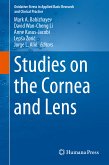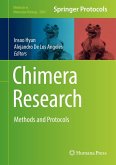This book familiarizes the reader with the current landscape of cell-based therapies for the treatment of retinal disease, including diseases that affect the choriocapillaris, retinal pigment epithelium, photoreceptors, and retinal ganglion cells. Instead of utilizing a disease-centric approach to the topic, this book-edited by world-renowned stem cell scientists-focuses on strategies for developing and transplanting the cells. This includes the creation of replacement cells, cell-based neuroprotection, and in vitro disease modeling and testing. The final chapters briefly review parallel approaches that do not directly utilize cellular transplantation.
The use of cellular transplantation to treat retinal disease has recently become a viable and exciting therapeutic approach. The visibility of the retina and its laminar cellular architecture render it an ideal organ for the development of surgically delivered cellular therapies. Having an in-depth understanding of thecurrent state of cell therapy for the eye is an essential first step toward utilizing similar approaches in other organs. Ophthalmologists, translational clinician-scientists, stem cell scientists, and researchers interested in eye disease will find Cellular Therapies for Retinal Disease: A Strategic Approach essential reading and it is also suitable for workshops or courses at the undergraduate or Ph.D. level.
Dieser Download kann aus rechtlichen Gründen nur mit Rechnungsadresse in A, B, BG, CY, CZ, D, DK, EW, E, FIN, F, GR, HR, H, IRL, I, LT, L, LR, M, NL, PL, P, R, S, SLO, SK ausgeliefert werden.









